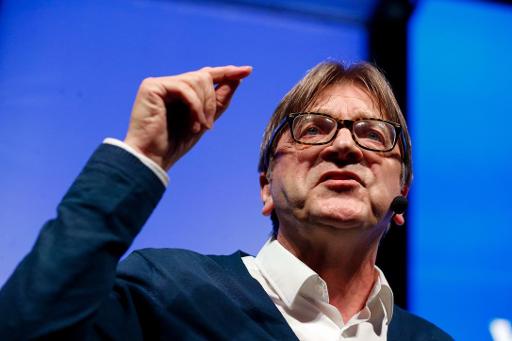The European Parliament’s Brexit coordinator, Guy Verhofstadt, has accused former British Foreign Minister Boris Johnson, of “disinformation” on the British withdrawal from the EU, in an opinion piece published on Friday in the Guardian.
Johnson is the frontrunner in the race to become the next leader of Britian’s Conservative Party and replace Theresa May as Prime Minister. According to Verhofstadt, the debate between the two candidates proves that they have learnt nothing from the past two years of negotiations with the European Union.
This is not surprising since Johnson, the favourite, is the main architect of the campaign to pull out from the EU at the referendum in 2016, Verhofstadt said, accusing the former Foreign Minister of continued “dissimulation, exaggerations and disinformation on Brexit.”
He cited as an example of these “counter-truths” the myth that the United Kingdom can tear up the Brexit accord concluded by Theresa May with Europe in November last, refuse to honour its financial commitments to the EU and, at the same time, start negotiations on free-trade agreements.
As is often the case with populists, Boris Johnson’s combination of false promises, pseudo-patriotism and denigration of foreigners does not match reality, the European Parliament’s chief Brexit representative said.
His comments come at a time when Johnson’s adversaries have been attacking his unpredictable nature and questioning his aptitude to govern.
As Foreign Minister, he had accused the French of behaving like “turds” on Brexit, a comment that was to have been aired in a documentary on BBC but was edited out at the request of the Foreign Office, the Daily Mail tabloid revealed on Friday.
Johnson had been filmed in a three-part documentary titled "Inside the Foreign Office" shown on BBC Two in November 2018.
“The programme set out to reflect the realities of life inside the Foreign Office,” a BBC spokeswoman said. “The production team made judgements about what was in the programme and they are satisfied that the programme achieves its ambitions and has the content they wanted.”
The Foreign Office has declined to comment on the issue.
The Brussels Times

